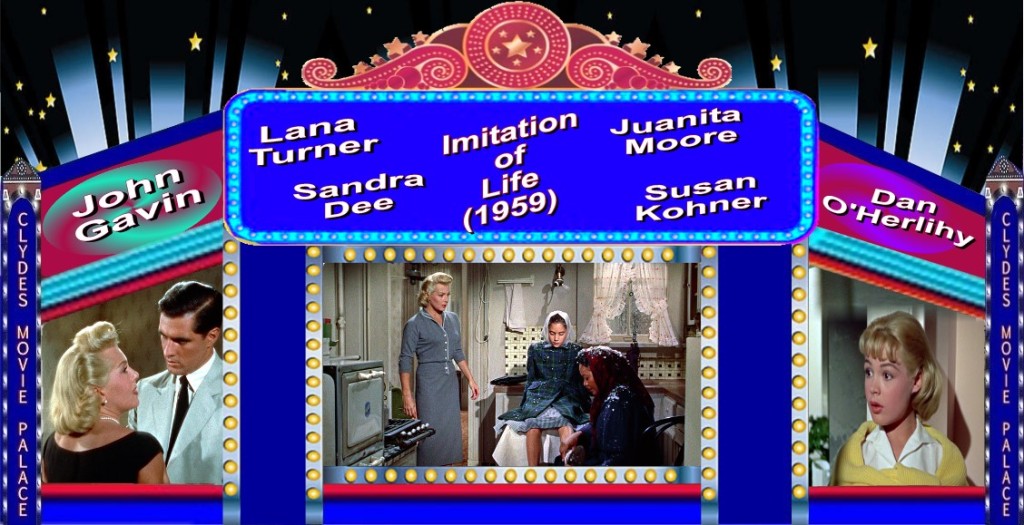
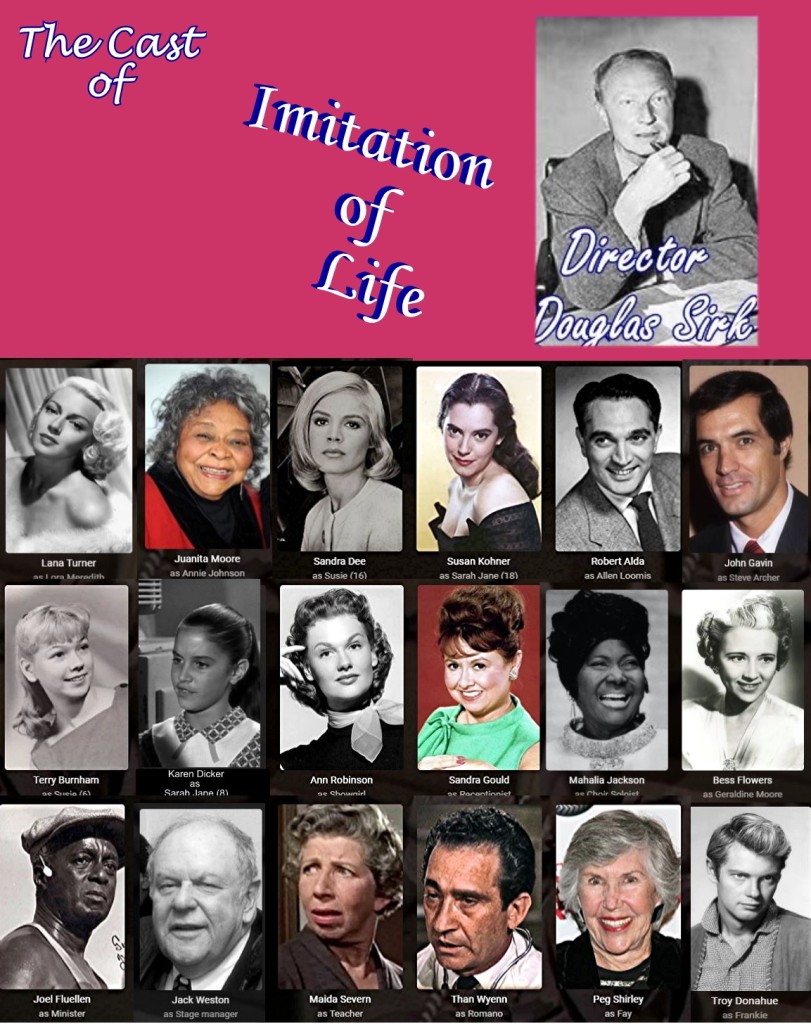
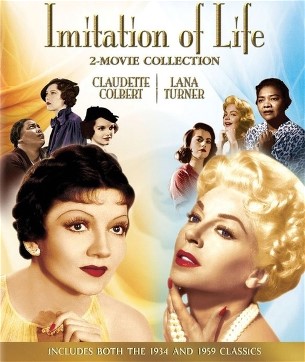 It’s hard to believe that Director Douglas Sirk’s remake of Imitation of Life (first filmed in 1934 and based on the 1933 Fannie Hurst novel) was once thought of as nothing more than a high-class soap opera. I thought of it that way once, but that opinion went out the door quite a while back. The film is now considered a masterpiece by many, and I have to concur with that opinion.
It’s hard to believe that Director Douglas Sirk’s remake of Imitation of Life (first filmed in 1934 and based on the 1933 Fannie Hurst novel) was once thought of as nothing more than a high-class soap opera. I thought of it that way once, but that opinion went out the door quite a while back. The film is now considered a masterpiece by many, and I have to concur with that opinion.
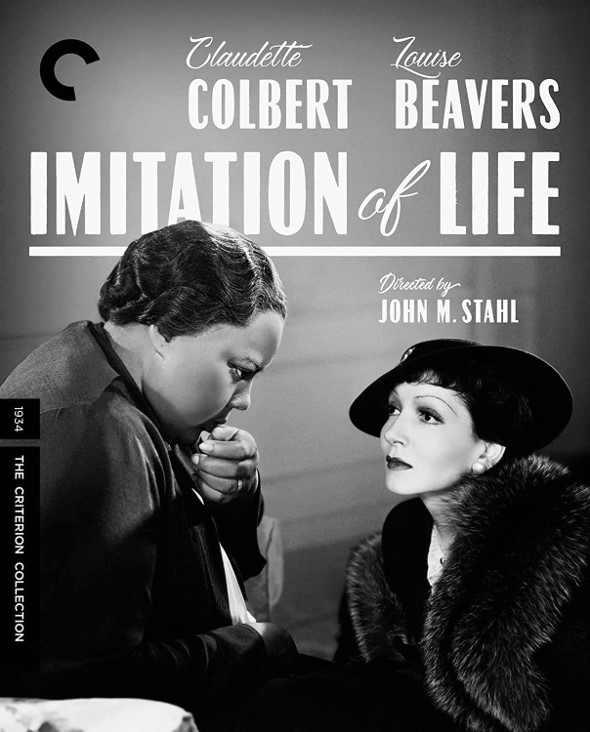 Imitation of Life, along with the 1934 version, have both been inducted into the Library of Congress National Film Registry as being historically or aesthetically significant and recommended for preservation by those holding the best elements for that film. In this case, that would be Universal, who released both films as a two-movie set on Bluray. In addition, Criterion has released the 1934 version as well. Whether we’ll ever see a 4k release is debatable, but this film would surely benefit from it. Are you there, Kino Lorber?
Imitation of Life, along with the 1934 version, have both been inducted into the Library of Congress National Film Registry as being historically or aesthetically significant and recommended for preservation by those holding the best elements for that film. In this case, that would be Universal, who released both films as a two-movie set on Bluray. In addition, Criterion has released the 1934 version as well. Whether we’ll ever see a 4k release is debatable, but this film would surely benefit from it. Are you there, Kino Lorber?
Our movie begins in 1947 at a crowded Coney Island beach in New York City where a distraught mother, Lora Meredith (Lana Turner), searches frantically for her not so lost daughter Suzie (played at age 6 by Terry Burnham). Here, she bumps into her future love interest, freelance photographer Steve Archer (John Gavin), who directs her to a police officer for help.
Suzie has found herself a playmate, Sarah Jane (played at age 8 by Karin Dicker). They are being watched over and fed hot dogs by Annie Johnson (Juanita Moore), a black woman. When Lora arrives, the two children run off to play together while Lora and Annie chat and get to know each other.
Lora: Sarah Jane’s a lovely child. How long have you taken care of her?
Annie: All her life.
Lora: I wish I had someone to look after Suzie.
Annie: A maid to live in? Someone to take care of your little girl. A strong healthy settled-down woman who eats like a bird and doesn’t care if she gets no time off and will work really cheap.
Lora: Well, yes if one exists. Oh, someday!
Annie: How about today? I’m available.
Lora: You?
Annie: Me. Annie Johnson
Lora: You mean you’d consider leaving that lovely little girl?
Annie: Oh, I wouldn’t be leaving her. My baby goes where I go.
Lora: (Incredulously) Sarah Jane, is your child?
Annie: Yes, ma’am, it surprises most people. Sarah Jane favors her daddy. He was practically white. Left before she was born. Seems to me, Miss Meredith, I’m just right for you. You wouldn’t have to pay no wages. Just let me come and do for you!
Lora: I couldn’t do that. I’d have to pay you but can’t now.
And if you thought that was that, you know very little about Basic Movie Plots 101.
When Sarah Jane starts crying that she and her mother don’t have a home, Lora relents and says, “Annie Johnson and Sarah Jane, Come on down!”
As for Photographer Steve, romance will soon follow once he acquires Lora and Suzie’s home address.
Lora reminds Annie that their presence in her apartment is a one-night-only engagement meaning the arrangement will continue for quite a while.
Suzie offers Sarah Jane a black doll to play with that she happens to have in her collection, but she’ll have none of that shit. She wants the white doll that is Suzie’s favorite; thus, the movie wastes no time telling us that Sarah isn’t tuned into this whole business of being black. Sarah Jane, who was crying over not having any place to live just a short while ago, is also not too keen on living in a back room off the kitchen. At the ripe old age of eight, she’s tired of being relegated to back rooms and has seen enough of them.
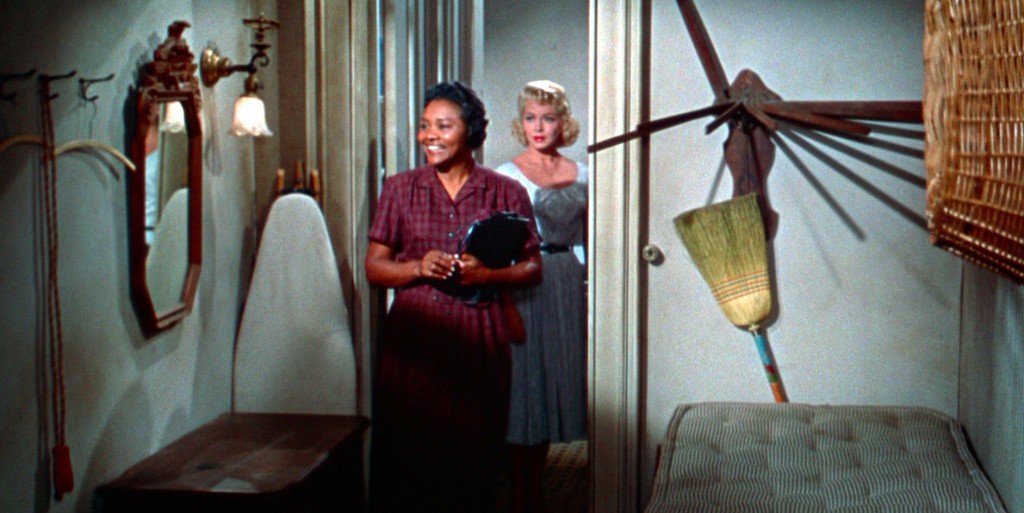
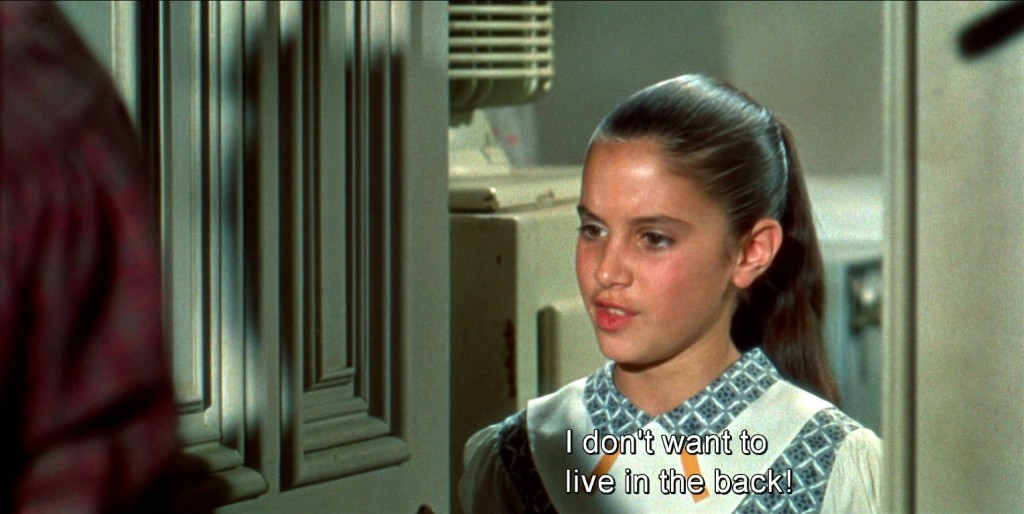
It doesn’t take long for Lora to realize that a live-in maid who works practically for nothing but a place to sleep and a meal now and then is damn convenient. And here you thought slavery had ended in the 1800’s. Not that Annie or Lora would ever classify their relationship as such. Eventually, it works out for both parties financially, but not necessarily as an improvement to their mother/daughter relationships.
Lora and Steve hook up romantically when he delivers the pictures of Suzie and Sarah Jane that he took at the beach. While Steve and Lora are at lunch, she learns that agent Alan Loomis (Robert Alda) is casting a new play and manages to finagle her way into an interview. It goes well at first, but Loomis sees through Lora’s act but still wants her as a client, which requires her to do certain immoral things. Welcome to Hollywood Whoredom, Lora Meredith. Come on down!
But Lora, being of sound mind and moral principles, turns Loomis down without even thinking twice about it, sheds his mink coat, and heads out the door.
All this while Annie has been addressing Lora’s envelopes for her, making a deal with the landlord on the rent, which includes getting ten dollars off for cleaning the stairwell and laundering a persnickety man’s clothes for him while the two kids are in school. Annie runs this show, and Lora is the one along for the ride while she weeps over Loomis, making her feel cheap. Yet, inexplicably, or maybe out of necessity, Loomis remains Lora’s agent throughout her up-and-coming career. It’s a clue as to what many actresses were and, in some cases, still are subjected to in order to establish a film or Broadway career.
Steve, just like every insecure Republican Male in 2023, wants Lora to forget about being a Broadway actress to become his housewife, clean, cook, do the dishes, draw the bath, have babies, bring him a beer, and draw his bath. Bye-bye, Steve.
Eventually, through a bit of luck, Lora gets a supporting role in a play by writer David Edwards (Dan O’Herlihy). After rave reviews, Lora becomes his permanent comedy star, like the Lucille Ball of Broadway. It is strongly suggested that she also becomes Edward’s lover during this time.
Eleven years and eleven plays later, things have changed quite a bit for Lora, Annie, and Suzie (now sixteen and played by Sandra Dee). But not necessarily for Sarah Jane (now eighteen and played by Susan Kohner). It’s a best-of-times, worst-of-times scenario.
Because of her Broadway success, Lora has all the material things one could ask for and bestow upon her daughter simultaneously. She doesn’t have a good relationship with Suzie, who spends much of her time away at boarding school, only seeing her mother on rare occasions when she can get away from her plays. Sarah Jane, who is more of an adult now, is still struggling to become white, having secretly acquired a white boyfriend. It’s a move that leads to tragic consequences.
Unlike Suzie, who would like more time with Lora, Sarah Jane would like nothing more than to have Annie stay as far away from her and as inconspicuous as possible.
And remember Steve, the photographer? Having mellowed out a bit about the whole male chauvinist housekeeping wife bit, he re-enters just in time to become a companion looking after Suzie while Lora is overseas making a film after she had promised her daughter she was taking time off to spend more time with her. Suzie doesn’t perceive Steve as her designated companion and instead falls in love with him.
I want to tell you all this works out, but I can’t. This movie isn’t some ordinary run-of-the-mill weeper and could just as easily have been titled Tragedy of Life.
While watching Imitation of Life a couple of weeks ago with my wife in our home theater, she turned to me at one crucial point involving Sarah Jane. She said, “Frankly, I don’t blame her. Look at how black people have been treated. If I could escape that, I would do it.”
Despite the insistence of Lora that Annie is her friend and confidante and that she seems content to accept it as just that, she remains Lora’s glorified maid. Without Annie, one could even surmise that Lora may not have had the opportunities her success brings her. Sara Jane, forgetting for the moment that the only reason she has the things she does is because of Lora’s success when asked to serve Lora’s dinner guests, Sara Jane does so as if she’s Prissy in Gone With the Wind. But this “act” comes when Lora and Annie want to fix her up with nice black boys, sons of chauffeurs, butlers, gardeners, and maids.
Sarah Jane’s struggle to be identified as white is painful to sit through, not because she wants to, but to her, it’s a way of survival, to escape the reality of racism and segregation. To no longer be looked at as inferior. We feel her pain and struggles in scenes where Sarah Jane’s race is discovered. One has to wonder, however, if the audiences of the 50’s understood that. Many of them, including some critics, considered the film nothing more than a soap-operish tear-jerker. But now, over 60 years later, Imitation of Life is regarded as a masterpiece of race commentary. In 2015, BBC Online named the film the 37th greatest American movie ever made, based on a survey of film critics.
The acting, with the exception of John Gavin, is impeccable. Gavin is as wooden as a ventriloquist’s dummy but he’s not in the movie enough for you to care. Both Kohner and Moore received Oscar nominations for Best Supporting Actress. Neither won, but either/or deserved to. Kohner did win a Golden Globe in that category, however. But let’s not trivialize Lana Turner’s contributions either. She was never better at portraying the glamour queen, helped by Sirk and Producer Ross Hunter giving her lavish clothes befitting of Broadway royalty.
Have things changed in all these years? Some. But the underlying systemic racism is still here.
We have one political party, the GOP, running on the idea of how white you can be. During the Obama Presidency, the same political party would claim he was not really black at all while at the same time insisting he wasn’t even born in the United States.
 During the Obama years, I had a discusion with one family member regarding the Obama presidency, pointing out many facts she didn’t care to be aware of. At the end of the conversation, she responded, “I don’t care. I just hate Obama.” It doesn’t take a genius to figure out why or why this country would continue to give power to White Supremacists like Trump and DeSantis while making it a crime to teach about racism in schools and, as in the case of DeSantis and friends, proclaiming that slavery was one big happy beneficially good time for black people.
During the Obama years, I had a discusion with one family member regarding the Obama presidency, pointing out many facts she didn’t care to be aware of. At the end of the conversation, she responded, “I don’t care. I just hate Obama.” It doesn’t take a genius to figure out why or why this country would continue to give power to White Supremacists like Trump and DeSantis while making it a crime to teach about racism in schools and, as in the case of DeSantis and friends, proclaiming that slavery was one big happy beneficially good time for black people.
By the film’s end, Lora’s struggles and problems with Suzie seem almost trivial. Director Douglas Sirk masterfully moves that story to the background to focus on Annie and Sarah Jane. When the film was finished, Sirk returned to his native Germany, never to direct another feature film, having had his fill of the Hollywood machinery:
I never regarded my pictures as very much to be proud of, except in this, the craft, the style. And in movies you must be a gambler. To produce films is to gamble. A director in Hollywood in my time couldn’t do what he wanted to do.
This is truly a great film. I would, as others have, put it on the list of films you must see before you die, and without hesitation, it deserves an A+ rating. Even to this day, I find the ending of this movie a struggle, as just about every man or woman does. Just don’t forget the Kleenex.

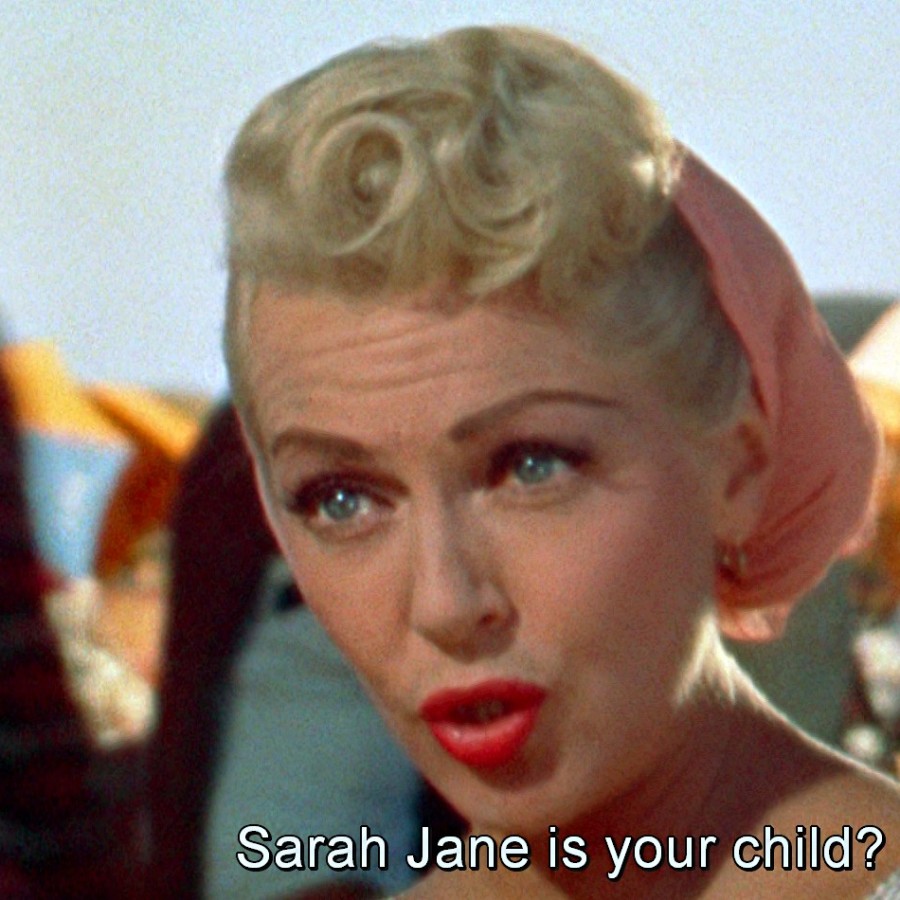

No comments:
Post a Comment